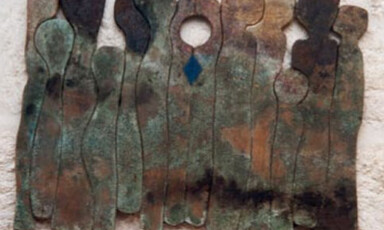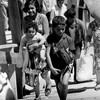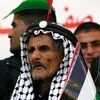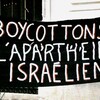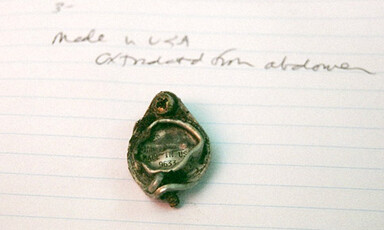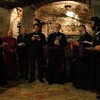
Archbishop of Canterbury Condemns Israeli Wall Around Bethlehem
22 December 2006
The Israeli-built wall is “a sign of all that is wrong in the human heart”, the Archbishop of Canterbury said today in Bethlehem. Speaking to the town’s civic representatives shortly after walking through the wall, Dr Williams said the wall symbolised “the terrible fear of the other, of the stranger, which keeps us all in one kind of prison or another”, from which God 2,000 years ago came to release people. Dr Williams was speaking on behalf of a delegation of UK church leaders to the town of Christ’s birth, which included the Archbishop of Westminster, Cardinal Cormac Murphy-O’Connor, the moderator of the Free Churches, David Coffey, and the Armenian patriarch of Great Britain, Bishop Nathan Hovhannisian. Read more about Archbishop of Canterbury Condemns Israeli Wall Around Bethlehem
